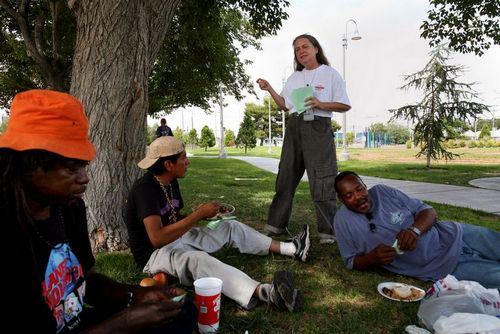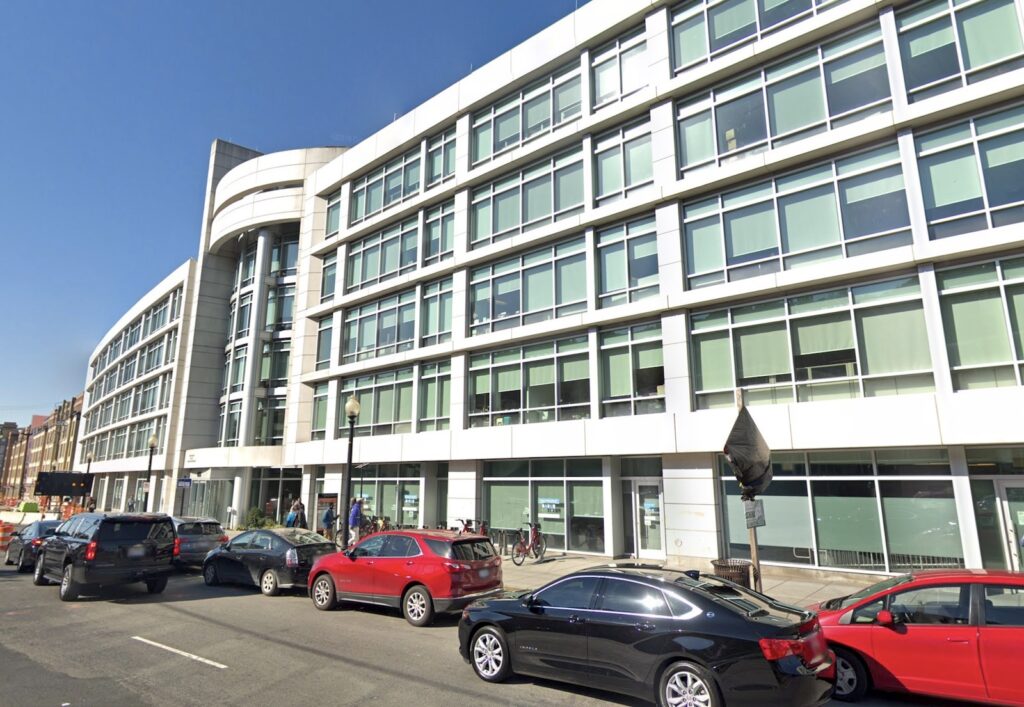Since 2006, I have been one of several committed but unpaid homeless advocates in Washington, D.C. We all come out of pocket in order to attend various meetings that are put on by government and the nonprofits and to do outreach to other homeless people. The city’s Interagency Council on Homelessness (ICH) has said that it values the input of the advocates. We’ve asked them to pay us.
The ICH has yet to move on the draft document it drew up in the summer of 2014 in which it itemized a $12,200 budget that was meant to support 14 advocates who’ve experienced homelessness, so as to request funding from the D.C. Council. Go figure. Maybe the publication of 2017 count results revealing that D.C. had 7,473 homeless people in January will cause this body, which hasn’t yet considered the reasons why the city’s 2004 ten-year plan failed (in 2004, we had 8,253 homeless people), to reconsider now how it might support and increase input from the advocates. After all, the ten-year plan has had a 110 percent failure rate 13 years in, thanks to many well-paid professionals who are now 1.5 years into the five-year plan called “Homeward DC” (D.C. having counted 7,298 homeless people in 2015, when it was adopted).
No worries. At least one professional from the non-profit community actually does value input from the homeless — Monsignor John “Father John” Enzler, CEO of Catholic Charities D.C. He has actually begun to pay me a decent-sized consulting stipend so that I can assist him at designing a better system for serving D.C.’s homeless community. I’m all in and began working on my plan mere hours after our meeting. If all goes well, as I trust it will, there may be opportunities for other advocates and social workers to become part of a system of real solutions that actually decrease homelessness consistently and permanently.
Over the past several months, I’ve stated different ideas of mine to a certain social worker I know who’s been in the field for 30 years — only to have her tell me that those ideas are tried and true, though D.C. Government refuses to fund them. One such idea is that of offering transit cards to the more difficult clients so that they’ll make regular visits to the social/caseworker’s office. Another is putting all of the social service information that a homeless job seeker needs in one place — from transit assistance for the job search and enough to tide them over to their first paycheck all the way to helping them find a rental that they can now pay for.
I’ll soon ask her what she thinks of the idea of taking three-years’ worth of the $10,000+ dollars that D.C. spends annually maintaining a single, non-disabled homeless person as well as the $4,000 that the Department Of Employment Services spends annually on a D.C. job seeker and using it to pay for a year’s worth of rent, job training and other services — so long as the individual can be sure not to need such services for at least two years thereafter. Because of this new opportunity, I’m recollecting my many thoughts and ideas which have hereto now seemed to fall on deaf ears, for the most part, and will put them to work finally. I’ll go so far as to review statements that homeless people made in 2006 concerning their struggles obtaining employment and housing — statements that were gathered during the four inaugural meetings of the ICH.
As part of this new effort, I’ll find ten high-functioning homeless people so as to gather input about their struggles exiting homelessness and to follow their situations through a series of experimental solutions. Together we’ll figure out ways to improve the system that is supposed to get them out of homelessness — new ideas that do more than just warehouse homeless people and which might even be presented to some non-governmental funders. However, I’m not under any illusion that the donors will fund a 13-year, 110 percent failure. I’m therefore incentivized to develop a set of ideas that actually work.
So, when the city’s homeless people see me walking around with my notebook in hand, they will know that I’m there to hear their ideas and concerns; because someone took the time to hear me. Together we, the homeless, will accomplish with a relatively small amount of financing what many well-paid professionals have not been able to accomplish for so long with literally billions of dollars: a consistent decrease in the number of homeless Washingtonians.
Eric Jonathan Sheptock is an advocate for the homeless.








